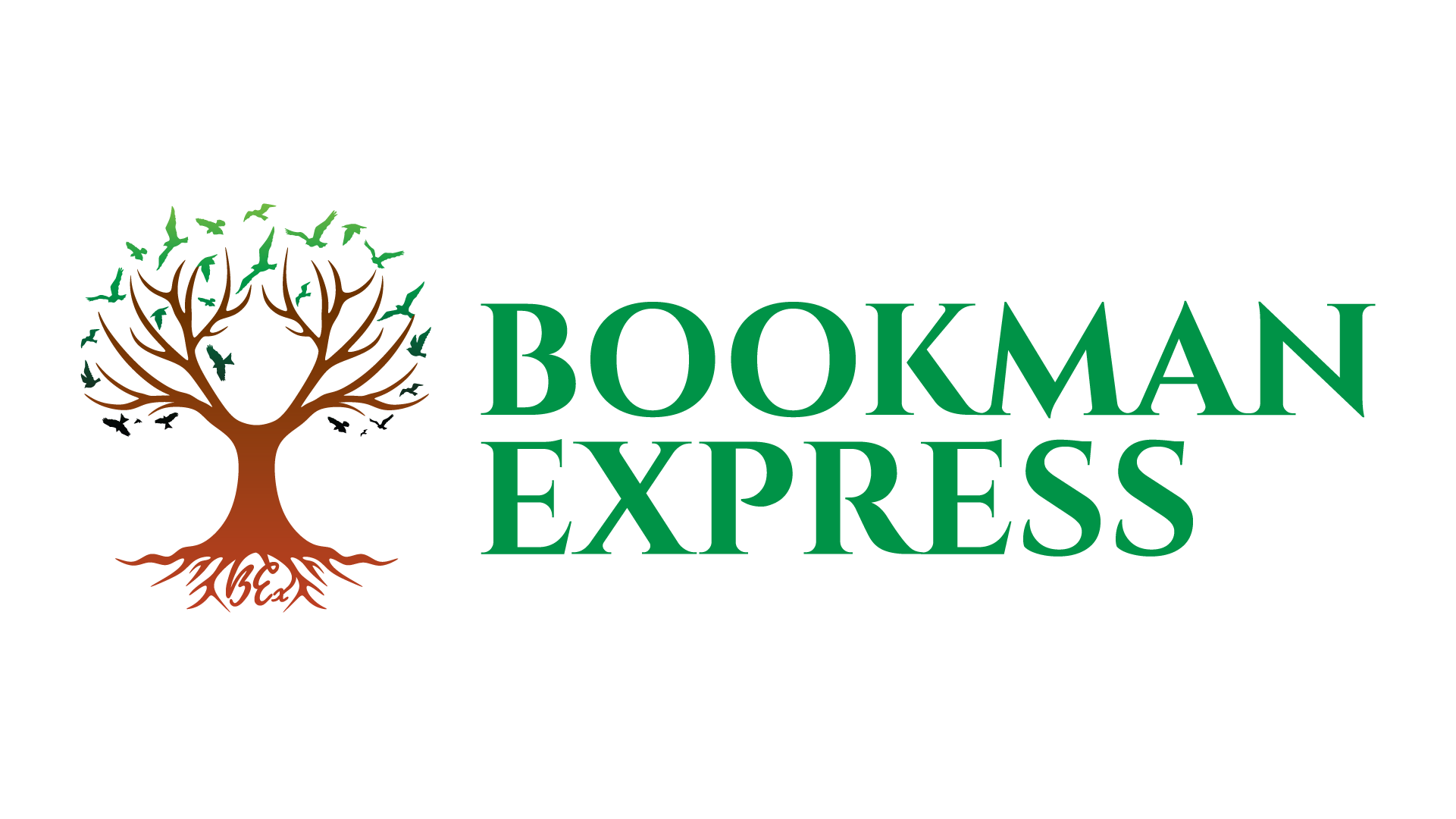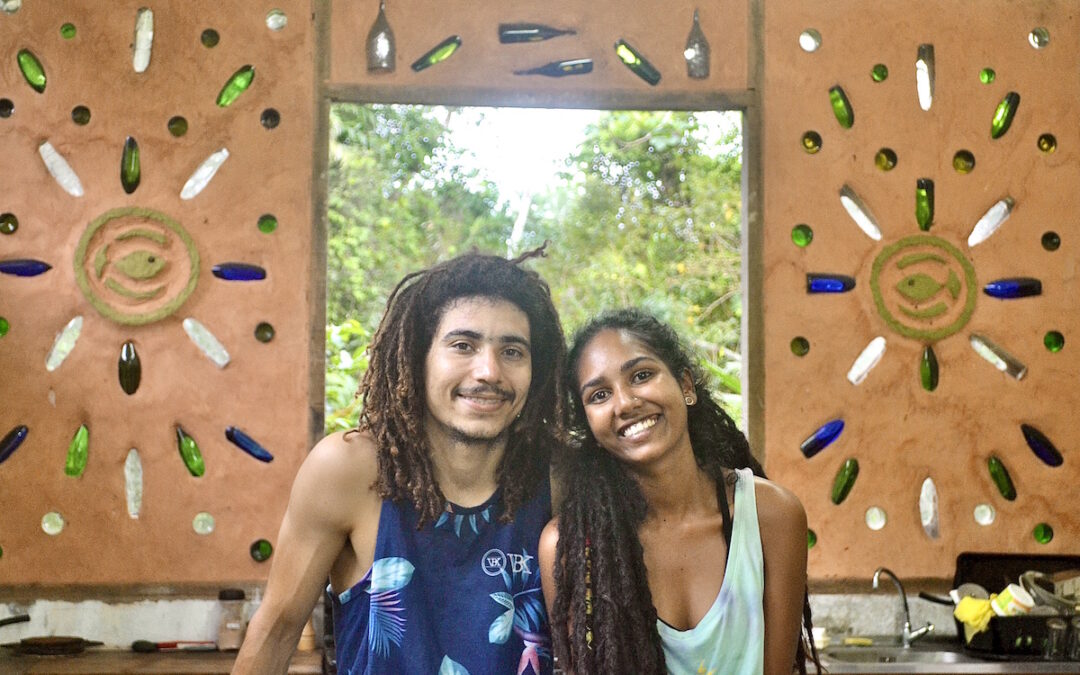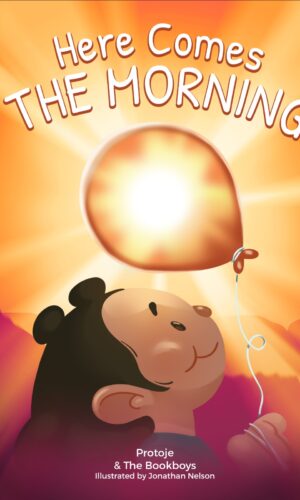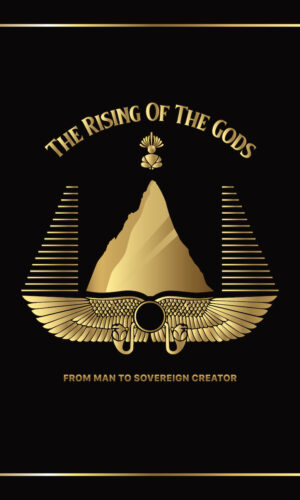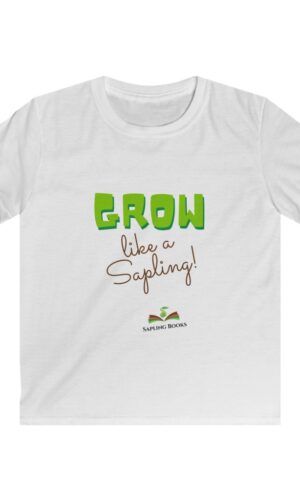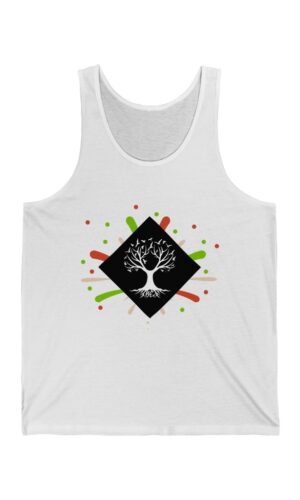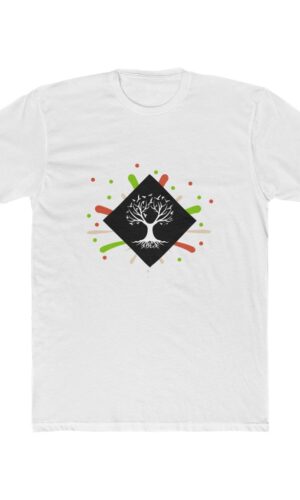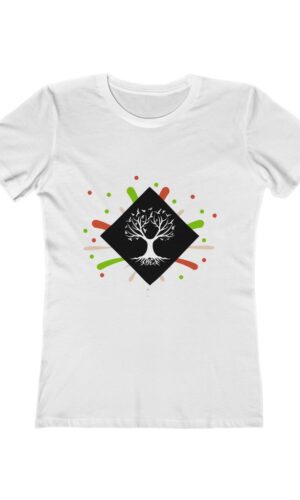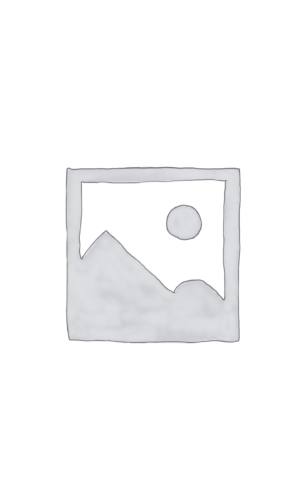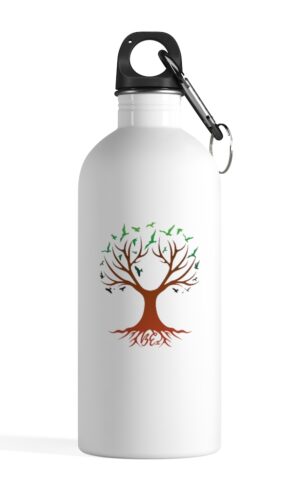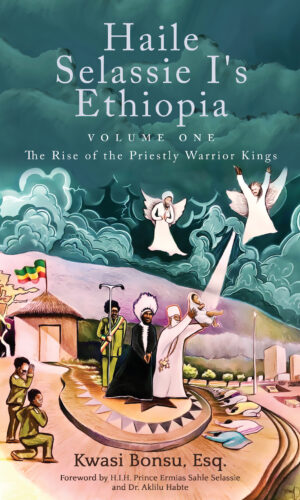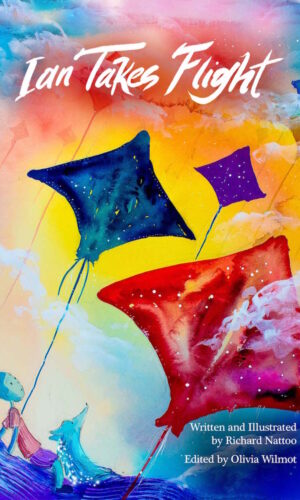The daily actions that form our lifestyles can be either helpful or harmful to the planet we inhabit. Those of us who are increasingly conscious about this are starting to desire more sustainable practices in our lives. This inspiring young couple from Trinidad & Tobago – Maleah Rahaman-Noronha, a farm-to-table chef, and Kenneth Mora, an Earth building enthusiast – are leading their generation by example. They are a joyful duo who are fully engaged in living off the land with a regenerative approach. Running their business, Loud Lollies, they use seasonal, locally sourced fruits to make gourmet frozen treats, while also managing an Instagram account @staywokesustainability to share some of their knowledge and memorable experiences publicly.
How did permaculture become a part of your lives?
Maleah: I grew up on our permaculture farm. My dad is one of the only teachers of permaculture in the Caribbean, so I had a background growing up with permaculture. I’ve always been connected to the environment. My turning point was taking a permaculture course in my last year in high school. At that point, I just decided thats what I’m interested in doing connected with what I wanted to do, which was cooking. I recently went away to study, became a farm-to-table chef, then I came back to Trinidad and decided I want to move to the farm and just learn more about growing food and kinda making that connection.
Ken: I met her during a permaculture course on the farm. I fell quite in love with the idea of regenerative farming, the whole thing, and I fell in love with her, so I ended up on the permaculture farm too. At the farm, it naturally has very bad soil so it’s almost like a challenge in itself to live there and, over the years, see that clay dirt turn to rich soil. But it is my goal and biggest dream to live on a piece of land like that and regenerate the soil.
What is permaculture exactly?
Ken: Permaculture is based on principles like a round system, a circle economy. Basically, you’re trying to be self sustainable. You’re trying to care for the Earth, care for people, care for plants, just care for life in general. It’s just a general way of life. So from the moment you get an acre of land or something, if you think in the normal, conventional way, you’d be like, Okay, well I guess I’ll just build my house here in front, on the roadside, and then cut down some bush and plant some trees and what not. But when you think on a permaculture scale, you wanna be in the center of your land. Well, not necessarily in the center, you can be wherever but you want to have zones. You’re trying to be sustainable on that land to feed yourself, first and foremost, and then if you have excess, you try and make money from that. But the number one goal of life is to be fed, and when you are that much closer to your food, you just become that much more aware of everything else.
Maleah: It’s just a more regenerative, more sustainable lifestyle and a whole mentality that uses waste as a resource. Even how our life is set up. Everything you need is closer to you and, as you go further away, it turns more into wildlife and forest.
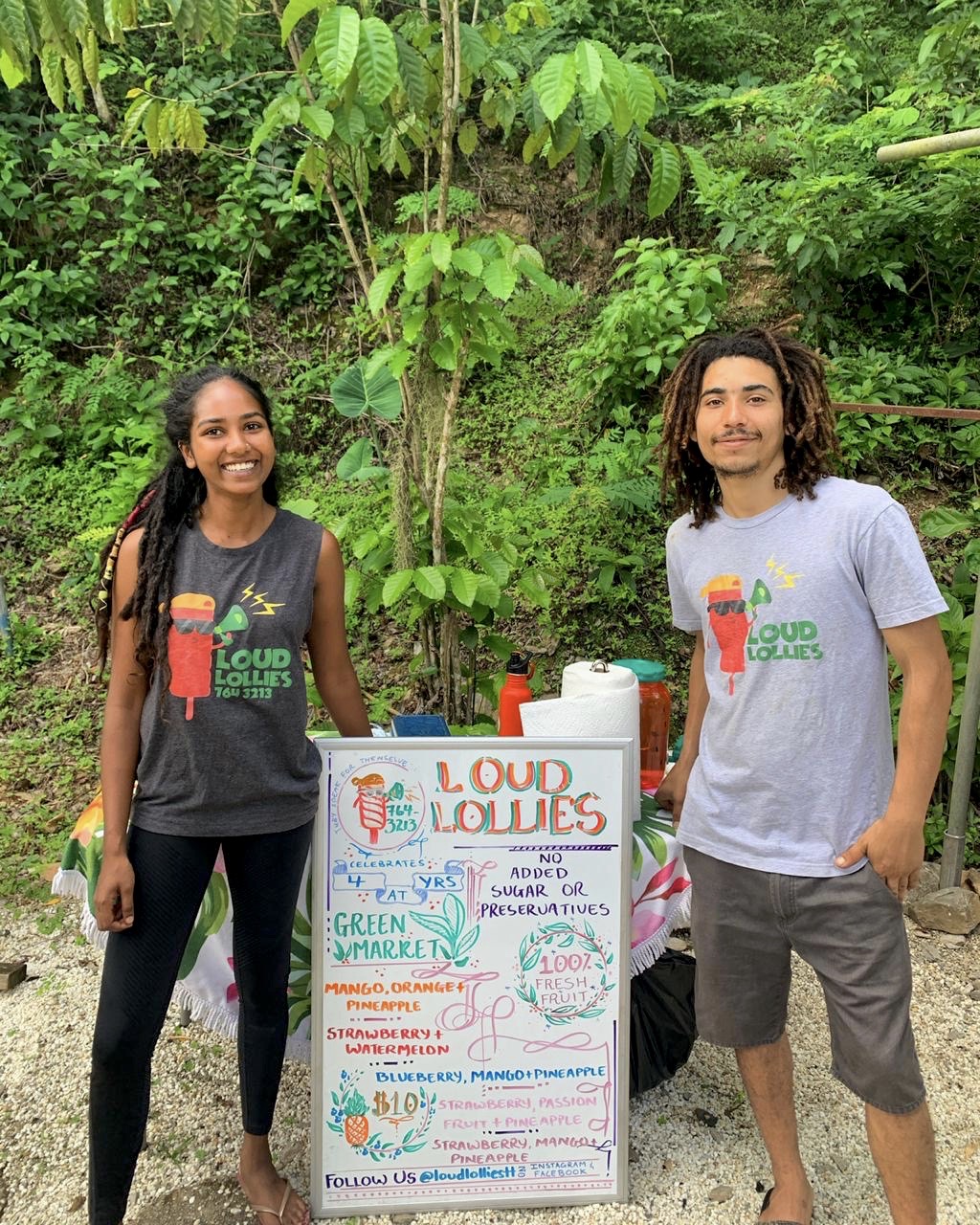
Maleah and Ken vending their Loud Lollies at a local event.
How did the idea for Loud Lollies come about?
Maleah: It happened randomly. I was working in a local chocolate company called Cocobel, and I was in charge of making their ice creams, using their chocolate for that summer, and a friend used to run the green market in Santa Cruz, one of the first farmers’ markets in Trinidad, and she asked me to make some lollies for a themed event, the Mango and Pine Festival, and the first flavor we made was mango and pine. We made around thirty lollies. They sold instantly! And ever since then we just grew it. We kept on going to the market and now we’re in a few stores and pharmacies.
What’s your favorite flavor?
Maleah: We come up with a lot of wild flavors! But my always favorite flavor is strawberry-mango-pineapple, and I add ginger to it and it becomes extra good.
Ken: My newest flavor is the Nuts Man.
Maleah: Oh yeah, we just launched a dairy-free ice-cream lolly and we’re naming them all from local Trini things.
Ken: Trying an’ keep it local sounding. So they have nuts men all around the highways selling roast nuts, cashew nuts, peanuts, and that is where we get the name from.
Maleah: It’s made of cashew milk, almond butter and maple syrup. And it taste rel good.
An important part of what we wanted to achieve with our business was to be mindful of all the things we do, how it affects the Earth, how it affects the community.
–Maleah Rahaman-Noronha
In a world where healthy food options don’t always come sustainably, how do you ensure that your business and lifestyle align?
Maleah: An important part of what we wanted to achieve with our business was to be mindful of all the things we do, how it affects the Earth, how it affects the community. We compost all of our food scraps so that it goes back into the farming. We plant all of our pineapple heads and whatever seeds we can save. Everything is thought out to create that circular economy.
What are some typical things that you do on your land?
Maleah: On the farm, besides permaculture, we also teach Earth building, woodworking and we are now starting on another form of agriculture called syntropy.
What is syntropy?
LISTEN: Maleah and Ken give a basic idea of syntropy. [24 secs]
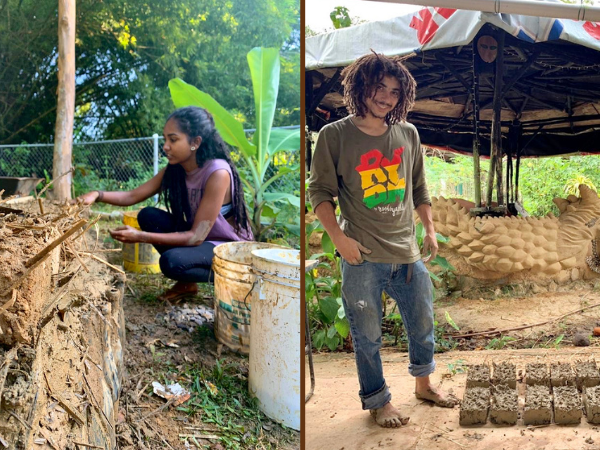
Maleah and Ken use clay from the land they live on to construct buildings.
What inspired your interest in Earth building?
Ken: I fell in love with the concept of Earthships before she did. That is something. [Maleah laughs.] She was into permaculture but I fell in love with Earthships.
Maleah: Yeah, I met Ken knowing about Earthships. They’re built from all sustainable resources and trash.
Ken: Michael Reynolds is the inventor. You could definitely check him out. They are somewhere in the desert where they have permission to try these houses out and they have communities out there. You not really spending much money on materials or labor. People actually pay you to take their tires. It’s also based on the idea that if you live somewhere it should be sustainable. They have glass windows, little beds for growing plants, gray water systems, the whole house runs on solar power, everything you can think about that’s sustainable.
Maleah: Another reason why we got into Earth building was because where we live we have a very depleted topsoil layer. We basically live on clay. So using the clay as a resource is one of the greatest things I think we could possibly do because everytime we dig a pond, we can use the clay, It’s basically going away from the need for concrete. Now you have a whole resource that is just being wasted and it can definitely more than be used, and look epic.
What are ways for people to incorporate permaculture into everyday life?
Maleah: You learn the best by doing. Waking up early and getting out there. A big part of this lifestyle is just observing what’s going on in your surroundings. Making the connections. There’s small ways in which you can incorporate sustainability into your life.
Ken: Sometimes you see leaflets sitting down somewhere for a long time and you move it and everything is just black and rich and just look like you could put a plant in it. And you’re like, Wow, look at that compost naturally happening in a lil’ corner here. Those kinda things really make that connection. Like, look how easy it is to make soil. Look how easy it is to bring back fertility and bring back life. Simply getting a water filter and not buying plastic bottle water, or buying those five gallon bottles and refilling them. The biggest thing is that we’ve made it such a ease to get food from our hand to our mouth. All you need to do is get money out your pocket and buy it. You don’t really think about where it comes from. We’re so detached from that in itself that as soon as you start to even produce a garlic chive and you season your food with it, that’s when you make the connection. From the smallest steps to the bigger steps.
Maleah: Growing your own food really opens your eyes to what’s possible.
Who are people throughout the African Diaspora (past and present) who have shaped or influenced you?
Ken: First and foremost, we have to give it to her dad, Erle Rahaman-Noronha, who runs the farm, Wa Samaki Ecosystem. Then there will be Johny Stollmeyer…
Maleah: …who also teaches permaculture with my dad. And just small people along the way who are doing different things. There’s this reforestation program happening in Trinidad right now with the Fondes Amandes community, which is a mix of wealthy and not so wealthy. They have issues with fires burning down the whole mountainside and basically they’re trying to rehabilitate it and bring education to the community. Also, Midnite – Akae Beka – is a big inspiration. His words are teachings.
Ken: I even watched a video about something about they said Midnite’s passing is part of a revelation as well because he was like the last true messenger. You could say he was a descendant of the true Ethiopians – the people who overstood the knowledge and were here to tell it to us. With his passing, it kind of pushed us forward. I can only speak for myself but I can notice a lot of people who are more dedicated to their goals and the sustainable lifestyle. With his coming and going, the people who follow him will now be propelled on a different level of their journey where they never expected to be.
We have a culture of destroying nature. There’s a very small part of us who love nature and want to be in it.
–Kenneth Mora
If culture is the last stand, what is culture to you?
[Read for context: Culture is the last stand]
Maleah: Culture, to me, is togetherness, you know. Coming together as one for a better, communal cause. And empowering each other to do better and live better.
Ken: Culture is basically a little cult, where everyone has these predetermined beliefs, the ideologies and things that separate us from another person’s culture, their brought-upsy, their origins. So culture is extremely important because it’s how people survive. By surviving you make a culture, regardless. Mushrooms have to survive to culture the wood chips and then the wood chips fruit. But culture sometimes is detrimental because when someone is stuck in their culture and their culture is not necessarily the best practice, that’s detrimental. We have a culture of destroying nature. There’s a very small part of us who love nature and want to be in it. The rest of us want concrete walls and nice high rise buildings. Destroying culture is where we want to be at now, and making a new culture. A green culture, you know. A permaculture. We’re just a culture gone bad. The gas gone sour. I’ll drink that wine later. [Maleah laughs.]
Speaking of which, are you also making wine?
Maleah: The wine didn’t work out. [Both laugh.]
Ken: We never pursued it again because the wine just failed. Maleah mighta spoil the wine by actually checking on it too much! That’s my personal belief. And we have so many other things going on.
Maleah: Most of our time is taken up by running Loud Lollies because we are trying to make money and make it a business. We just started building our house as well. We were supposed to have internships at Wa Samaki on the farm but, because of the whole COVID-19 situation, all our courses had to be canceled. The first thing our core team decided and started doing as COVID-19 came around was to just plant as much food as we could. We had to close down Loud Lollies for like two weeks to a month, and everyday we were out there just planting food. We weren’t sure what was going to happen, so we decided we needed food security. If the government doesn’t say that’s what we need, we know that’s what we need! We live to eat and work in the land. That’s what we’re here for. Planting food is really the most important.
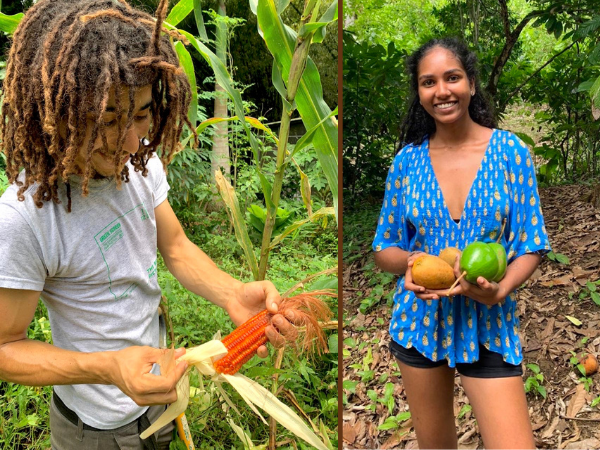
Food security is a major concern for Ken and Maleah. They show some of their harvest here, including Trinidadian Landrace Red Corn.
Do you think COVID-19 will make people think differently about growing food?
Maleah: It should be the example to show the need for food security and the need to grow your own food. Like, if all boats and planes were to not come in, what would we do? How would we eat? Even all the main dishes in Trinidad are based on rice and beans and things that we don’t even produce in Trinidad. It’s absolutely ridiculous. We do grow rice locally but not in any kind of mass quantities. They just have small businesses that do it and sell it.
Ken: In the States you can find farmers who are on a sustainable drive. It’s a lot easier than Trinidad where everything is still monocrop or just the conventional thing. It’s such a small awakening that is really sad.
What recent or favorite book(s) would you recommend to readers?
Both: Letters to a Young Farmer: On Food, Farming, and Our Future by Stone Barns Center for Food and Agriculture.
Maleah: Even The Third Plate by Dan Barber (one of the writers in Letters to a Young Farmer) is a good book as well. It’s about his journey in food and agriculture. We also recently read a very old book that was given to us, called Mud, Space and Spirit: Handmade Abodes by Virginia Gray, Alan Macrae and Wayne McCall. It’s basically about people’s Earth builds. This was, like, in the 1970s but it was a really epic book to read.
Why did you start @staywokesustainability on Instagram and what should people gain from it?
Maleah: I wanted to have a background behind Loud Lollies to kind of show people our lifestyle. Yes, we’re running a business but we also run everything in our life a little more sustainably. That page was to educate people, showing people the food I cook from the land, making the connection while still being fun about it. People like to see our life and see how we make the connection. Everybody has the yearning to reconnect.
Ken: I called it Stay Woke because when you are awakened and know the problems, it’s easy to kind of give up, so to speak. You just think of your force as so small versus the forces of the world and you maybe stop doing the things that were sustainable. You stop maintaining your garden or whatever. These little things happen and you just have to stay woke. And, in the process, maybe we even trigger someone into an initial awakening, so it’s just meant to be a doorway into sustainability. If you aren’t woke, get woke. And if you are woke, stay woke.
